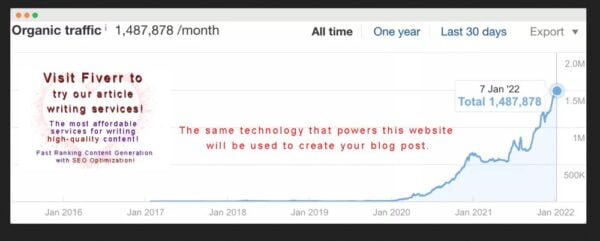Blog Writing for Lawyers: How to Connect with Your Audience Through Engaging Content
As the legal industry evolves, so does the need for lawyers to establish a strong online presence. Blog writing for lawyers is not just about showcasing expertise; it’s about connecting with clients, educating the public, and carving out a niche in the competitive legal landscape.
This article will explore the ins and outs of blog writing for lawyers, offering practical advice and insights to help legal professionals engage with their audience through compelling content.

Table of Contents
Understanding the Importance of Blog Writing for Lawyers
![]()
Before diving into the mechanics of blog writing, it’s crucial to understand why it’s a valuable tool for lawyers. A well-maintained blog can serve multiple purposes:
- Establishing thought leadership and expertise in a particular area of law.
- Improving search engine optimization (SEO) to increase online visibility.
- Providing a platform to discuss recent legal developments and case law.
- Engaging with potential clients by answering common legal questions.
- Building trust and credibility with both peers and clients.
By consistently delivering quality content, lawyers can leverage their blogs to achieve these objectives and stand out in a crowded market.
Identifying Your Target Audience
![]()
Before you start typing away, it’s essential to identify who you’re writing for. Your target audience could be potential clients, other legal professionals, or even law students. Understanding your audience will shape the tone, complexity, and topics of your blog posts. For instance, if your primary audience is potential clients, you’ll want to avoid legal jargon and explain concepts in plain English.
Choosing the Right Topics
![]()
Selecting relevant and engaging topics is at the heart of successful blog writing for lawyers. Here are some ideas to get you started:
- Explanations of legal processes or terms in layman’s terms.
- Commentary on recent legal cases or legislative changes.
- Practical advice for clients facing common legal issues.
- Insights into the day-to-day life of a lawyer or law firm.
- Opinion pieces on hot-button legal topics.
Remember to keep your content fresh and updated to reflect the latest legal trends and news.
Writing Tips for Engaging and Informative Content
![]()
Creating content that resonates with readers requires more than just legal expertise. Here are some tips to enhance your blog writing:
- Keep it simple: Use plain English and avoid legalese to ensure your content is accessible to all readers.
- Be concise: Get to the point quickly and avoid unnecessary fluff.
- Use storytelling: Share real-life examples or case studies to illustrate your points and keep readers engaged.
- Be consistent: Maintain a regular posting schedule to keep readers coming back for more.
- Include a call to action: Encourage readers to contact you for more information or to schedule a consultation.
By following these tips, you can create blog posts that are not only informative but also enjoyable to read.
SEO Best Practices for Lawyer Blogs
![]()
Search engine optimization is a critical component of blog writing for lawyers. SEO helps ensure that your content is easily discoverable by those searching for legal information online. Here are some SEO best practices to keep in mind:
- Research keywords: Identify relevant keywords that potential clients might use to find your services and incorporate them naturally into your content.
- Optimize titles and headings: Include keywords in your post titles and headings to improve search engine rankings.
- Use internal and external links: Link to other relevant content on your website and to authoritative external sources to enhance your blog’s credibility.
- Optimize for mobile: Ensure your blog is mobile-friendly, as more users are accessing content on their smartphones.
- Use meta descriptions: Write compelling meta descriptions with keywords to improve click-through rates from search engine results pages.
By integrating these SEO strategies, you can increase the visibility of your blog and attract more readers.
Measuring the Success of Your Blog
![]()
To understand the impact of your blog writing efforts, it’s important to track key metrics. Use analytics tools to measure:
- Website traffic and the number of unique visitors to your blog.
- The average time readers spend on your posts.
- The bounce rate, or the percentage of visitors who leave after viewing only one page.
- The number of shares and comments your posts receive on social media.
- The conversion rate, or the percentage of readers who take a desired action, such as contacting your firm.
By analyzing these metrics, you can refine your content strategy and improve the effectiveness of your blog over time.
Legal and Ethical Considerations
![]()
As a lawyer, you must be mindful of the legal and ethical implications of your blog content. Ensure that you:
- Avoid making guarantees about case outcomes.
- Do not provide specific legal advice that could be construed as forming an attorney-client relationship.
- Comply with all advertising and professional conduct rules applicable to your jurisdiction.
- Maintain client confidentiality at all times.
Adhering to these guidelines will help protect your reputation and maintain the trust of your readers.
Conclusion: The Power of Blog Writing for Lawyers
![]()
In conclusion, blog writing for lawyers is a powerful tool for building a professional brand, connecting with clients, and sharing valuable legal insights. By understanding your audience, choosing the right topics, and crafting engaging content, you can establish yourself as a thought leader in your field. Remember to optimize your posts for SEO, measure your success, and adhere to legal and ethical standards. With dedication and consistency, your blog can become a cornerstone of your digital marketing strategy and a valuable resource for your readers.
Whether you’re a seasoned attorney or new to the legal profession, embracing the art of blog writing can open doors to new opportunities and help you make a lasting impact in the legal community.


